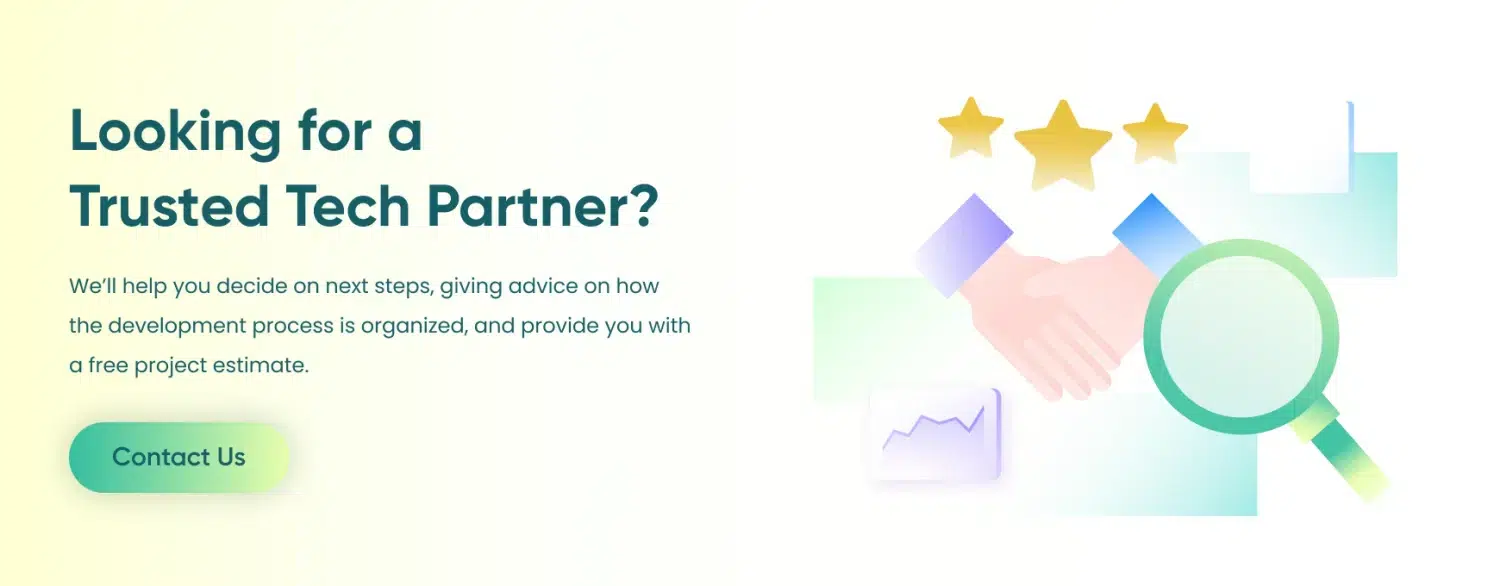Custom WordPress Development In 2024: Features & How To
Without a doubt, WordPress is one of the most popular website platforms on the internet, and for good reason. It is adaptable, user-friendly, and infinitely adjustable, making it an excellent choice for developing a wide range of websites. However, when it comes to making the most of WordPress, using a pre-built theme isn’t enough.
This is when custom WordPress development comes into play. Customization provides greater benefits in terms of design, performance optimization, security, and so on. In this article, we will discuss why a company might choose custom WordPress development and how to do it with the right technology partner.
What is custom WordPress website development?

Custom WordPress development is the process of creating and developing a customised WordPress website from scratch or updating an existing one. It entails developing bespoke themes, plugins, and functionalities to satisfy specific business requirements.
Custom WordPress development can be a suitable alternative for organizations that have particular requirements that cannot be addressed by existing themes and plugins or desire a distinctive look that stands out from the competition. However, experienced WordPress developers are generally required, which might be more expensive than utilizing pre-built themes and plugins.
Custom WordPress Website Development vs. WordPress Theme Customization
When it comes to creating a WordPress website, there are two main options: custom development or using a pre-made template. The key difference between the two lies in the use of the Advanced Custom Fields plugin. With this plugin, you can add any kind of feature, no matter how complex, to your site.
On the other hand, developing a WordPress theme involves customizing an existing template to fit your brand’s style. To better understand each approach, let’s take a closer look.
| Custom WordPress Development | WordPress Website Template Development |
|
|
WordPress.com vs WordPress.org
WordPress.com and WordPress.org are separate platforms for building and managing WordPress websites, each with its own set of benefits and drawbacks.
| WordPress.com | WordPress.org |
|
|
Benefits of developing a custom WordPress website

You should be aware of the benefits of custom WordPress website development to make an informed decision.
1. Distinctive Design
One of the most compelling reasons to opt for custom WordPress development is the ability to craft a design that is uniquely yours. Unlike off-the-shelf themes, a custom design allows you to align your website perfectly with your brand’s identity, setting you apart from competitors and making a memorable impression on visitors.
2. Maximized Customization
When you go custom, you gain full autonomy over every facet of your website. Forget the limitations of pre-built themes; custom development empowers you to tweak the functionality and layout to your heart’s content. Tools like Gutenberg and Advanced Custom Fields make the editing experience a breeze—even for those who aren’t tech aficionados.
3. Peak Performance
Custom WordPress themes are designed to be streamlined and devoid of extraneous code or features that can bog down your site. The result? A website that not only performs optimally but also offers quick load times, enhancing the user experience and potentially boosting your search rankings.
4. High Scalability
As your business evolves, so should your website. Custom WordPress development is inherently flexible, allowing for easy modifications and expansions to accommodate your growing needs. Whether you’re adding new services or scaling up your operations, your website can adapt seamlessly.
5. Enhanced SEO
Search engine optimization (SEO) is vital for online visibility, and custom development offers the advantage of structuring your site in an SEO-friendly manner. From meta tags to content hierarchy, every element can be optimized to improve your chances of ranking higher in search engine results.
6. Stronger Security Measures
Security is a paramount concern in the digital world, and custom WordPress development gives you the upper hand. With the ability to implement robust security protocols, you can minimize vulnerabilities and protect your site from various threats.
7. Seamless Integration
One of the unsung benefits of custom WordPress websites is their ability to integrate effortlessly with other software development outsourcing companies and systems your business relies on. Whether it’s your Customer Relationship Management (CRM) system, email marketing platform, or e-commerce setup, a custom site can bring it all together in a cohesive, efficient manner.
Get in touch with Savvycom’s experts for a free consultation. We’ll help you decide on next steps, explain how the development process is organized, and provide you with a free project estimate.
4 Steps of the custom WordPress website development process

Understanding the fundamentals is the key to building a successful custom WordPress site. You must clearly understand your objectives, how to reach them, and the timeline for completion.
Here’s a step-by-step guide to custom WordPress web development:
- Define the business objectives you wish to achieve with your website.
- Create technical and business requirements that will result in your product being delivered.
- Employ a UI/UX expert or a professional web design firm to assist you with the web design process.
- Develop the website and test it to ensure compliance with the workflow.
- Launch, maintain, and update on a regular basis.
Let’s go over each item on the checklist one by one.
Step 1. Business goal defining
Before hiring a WordPress developer, you must first define your objectives.
Often, there are 2 scenarios when a business decides to develop a custom WordPress website, and they are:
- Scenario 1. Scaling up business
Are you looking to expand your business quickly? Would you like to sell your products online, advertise on social media, or Google?
Or maybe you need landing pages with contact forms, Google Analytics, and other SEO features for your business ads?
If any of these goals sound like your company, then you should consider creating a WordPress website. With over 4 billion people having internet access, a custom site gives you access to a broader target market.
By choosing a bespoke WordPress platform, you can reach a much larger audience while remaining fiscally responsible and maintaining your brand’s online presence.
- Scenario 2. Testing market response to a solution
Many startups fail due to misinterpreting market demands, as stated by CB Insights.
To prevent this, creating an MVP for your idea and testing it among your target audience using a WordPress site is recommended. This will provide you with valuable insight into your product’s acceptance, necessary changes, and standout features.
It’s wise to follow this approach before investing large amounts of money into developing a scaled version of your product. Once you’ve identified your idea’s potential, the next step is to develop specifications to help bring it to fruition.
Step 2. UI/UX Design
The design of your website plays a crucial role in achieving your business objectives. The UI/UX design is responsible for translating your idea into a format that can be implemented by a WordPress developer.
It’s important to note that there is no one-size-fits-all approach to building a well-designed platform. The design will vary depending on the business goals, type, and niche.
However, understanding the role of website design is critical because it is a fundamental step in the entire development process.
Before beginning the design process, the UI/UX designer or design agency will gather website requirements from the project manager and business analyst based on business and technical needs. They will then use this information to map out the site’s features, functionality, and interface.
This stage is more flexible than others because design results are subject to change. This is because the website’s appearance and basic functionality are determined by the template created during this process.
Step 3. Website development and testing
After creating an interface design, the next step is to put it into action. This involves converting the design into a working website within a framework. The wireframe created by the UI/UX designer is then given to a WordPress developer to implement the design and ensure that the website matches the interface.
Sometimes, an interactive prototype is available to provide a more immersive experience of the website’s functionality and feel.
Setting milestones with specific deadlines is important to ensure that every actionable page is deployed within a reasonable timeframe. For instance, the developer can establish timelines to complete specific features.
At the end of this stage, you should have a fully functioning custom WordPress site. Once the website is completed, test it with a small group of people from your target market.
Make necessary changes and send them back to the developer for rework.
Step 4. Website launch, maintenance and update
When launching your custom WordPress site, it’s crucial to keep track of visitor feedback and take appropriate steps to implement their recommendations. If you have a busy WooCommerce or blogging site, consider having a support team to manage inquiries.
Make sure to budget for website upkeep from the start. A good annual maintenance budget for a WordPress website is 25% of your total development cost. For example, if your site construction cost is $50,000, plan to budget $12,500 for annual upkeep.
Your objective should be to market your platform to as many people as possible to increase user feedback, which can lead to progress. Regardless of whether your site is your ultimate product or a tool to measure user interest in your app, maintenance costs will include upgrades, new functions, analytics and tracking, enhancement, and service and upkeep.
Cost to build a custom WordPress website

The cost of custom WordPress development depends on several factors. The complexity of the design is a crucial factor, where a simple blog design will be cheaper than a complex e-commerce site. The inclusion of custom visuals, animations, and unique layouts may increase the cost.
The required functionality and features of the website also influence the price. More features like e-commerce capabilities, membership systems, and custom forms will lead to higher costs.
Choosing an experienced developer or agency from a different region will also affect the pricing. Although they may charge more, they are likely to deliver better results.
Here’s a spreadsheet that breaks down the costs of building a custom WordPress site by region:
| Region | Cost estimation (by USD) |
| Asia | 20,000 |
| Eastern Europe | 35,000 |
| Western Europe | 70,000 |
| Australia | 75,000 |
| The USA | 90,000 |
Challenges you might face when creating a custom WordPress web
In this section, let’s touch upon some common issues of developing a custom WordPress website.
Data-Related WordPress Website Building Issues
1. No Connection to the Database
Consider a typical situation that almost every WordPress website developer or user has seen. You wish to add a new post to your blog. Suddenly, the system reports that it could not connect to the database. This can be caused by several WordPress issues. You can either fix them yourself or seek help.
- Wrong Data for Connection
Check that the username, password, hostname, and database name in the wp-config.php file are correct. Perhaps someone altered these without telling you. Locate the file and double-check the data. Wrong? Edit. Right? Keep searching for the cause.
- Hosting Provider or Server Error
Another possible culprit is your hosting provider. You may have stored more data in your database than the supplier allows. Get in touch with them and find out. Furthermore, the server itself may be down at the moment. Then it’s time that heal.
2. Too Much Extraneous Information
Another major issue with WordPress website development and use is a significant volume of data in your database that you don’t truly need. When you first install WordPress, your database is spotless and well-organized.
The problem starts when you add posts, comments, etc. Along with the main database, the system builds a metadata table. For example, you might wind up with a comments table and a corresponding metadata table.
As time passes and more data enters your database, the database structure may go out of control due to the new tables. Because of the many interrelationships, querying the data with SQL becomes quite challenging. Use the built-in WordPress capabilities to create a more easy table structure. If the amount of data is large, the site may crawl at a snail’s pace.
Unfortunately, you can’t alter the way the system operates. In this case, hiring WordPress development experts is the best option. They will extensively evaluate your database organization and recommend the best ways to keep it clean.
Plugin-Related WordPress Issues
In many circumstances, the plugins you or a WordPress web developer installed are fine. Yet, their number could be the issue. There are already over 59,000 plugins on the marketplace, which puts web builders at risk of becoming overly reliant on this technology.
Many non-technical web builders rely only on these plugins because they do not understand HTML, PHP, CSS, or Javascript. However, too many add-ons might lead to some serious WordPress issues. One example is unusually long page loading times.
It’s preferable to have a web development company to address this problem. They are well-versed in major web technologies and can integrate them into your site. You won’t have to rely only on third-party WordPress plugin developers this way.
Slow Website
Posting an excessive amount of content in a short period of time can cause delayed loading on custom WordPress sites. This can negatively impact your website’s Google ranking and increase the bounce rate.
To avoid these issues, consider using a dedicated hosting server with sufficient bandwidth, regularly debug your site by removing old content, and implement CDN and website caching.
Finding a reliable WordPress development company
Channels to look for a WordPress development partner
Finding the ideal WordPress team for your project will be “no easy task.” You must conduct thorough online and offline research before asking critical questions of prospective partners and verifying their statements.
Here are some websites where you can look for partners:
- Freelance platforms, such as Upwork, Toptal, and Fiverr
- Business listings, such as Clutch
- Search engine sites, such as Google
- Online meetings, such as IndieHackers, OnlineGeniuses, and the UK Startup Conference
Beyond this, your network of coworkers, friends, and associates can also help you detect a trustworthy team.
Criteria of a reliable WordPress development company
Here are some essential criteria to consider when choosing a custom WordPress development partner:
1. Experience and Expertise
- Years in Business: Look for a company that has been in the business for several years and has a proven track record.
- Portfolio: Examine their past projects to assess the work quality and see if they have experience in your industry.
- Technical Skills: Ensure that the team has expertise in PHP, HTML, CSS, and JavaScript, which are essential for WordPress development.
2. Communication and Collaboration
- Availability: Your development partner should be available during your business hours for effective communication.
- Collaboration Tools: Check if the company uses project management and collaboration tools like Slack, Jira, or Trello.
- Feedback Loop: There should be a system for regular updates and feedback to ensure the project stays on track.
3. Quality Assurance
- Testing: Ask about their testing procedures. They should perform various types of tests, such as unit tests, integration tests, and performance tests.
- Code Review: Ensure that the company follows a code review process to maintain code quality.
- Updates and Maintenance: Find out if they offer after-launch support and how they handle updates and maintenance.
4. Budget and Timeline
- Transparent Pricing: Look for a partner offering transparent pricing without hidden costs.
- Flexibility: Ensure that they can adapt to any changes in the project scope and timeline.
- Payment Terms: Understand the payment terms clearly, including any upfront costs, milestones, and the payment methods accepted.
5. Reviews and Recommendations
- Client Testimonials: Look for client testimonials and case studies that can vouch for their quality of work.
- Industry Recognition: Awards and recognitions can be a good indicator of the quality of work.
- References: Don’t hesitate to ask for client references and actually take the time to verify them.
Once you’re confident that they meet all of your requirements, you can begin to formalize your partnership.
Final thoughts
Developing a custom WordPress website in 2023 is not just about having an online presence; it’s about creating a robust platform that serves your business objectives while offering an unparalleled user experience. From understanding what custom WordPress development entails to recognizing its numerous benefits, the journey of creating a custom website is intricate but rewarding.
The four-step development process ensures that you have a roadmap to guide you, while a clear understanding of costs helps you manage your budget effectively. Challenges are inevitable, but with the right strategies and a reliable WordPress development company, these can be easily overcome.
From Tech Consulting, End-to-End Product Development to IT Outsourcing Services! Since 2009, Savvycom has been harnessing the power of Digital Technologies that support business’ growth across the variety of industries. We can help you to build high-quality software solutions and products as well as deliver a wide range of related professional services.
Savvycom is right where you need. Contact us now for further consultation:
- Phone: +84 24 3202 9222
- Hotline: +84 352 287 866 (VN)
- Email: [email protected]
What are the advantages of custom WordPress development?
Custom WordPress website development has various advantages:
- Unique Design: It enables you to develop a distinctive design that supports your brand and distinguishes your website.
- Full Control and Customization: You have entire control over every part of your website, allowing you to adjust its functionality and layout to your exact requirements.
- Optimized Performance: Custom themes can be created to be lean and effective, which improves site performance, speeds up page loads, and enhances user experience.
- Scalability: As your business expands, custom WordPress websites may be adjusted and expanded.
- Better SEO: Custom construction allows you to optimize the structure and content of your website for higher search engine rankings.
- Security: You have more say over implementing security measures, lowering the risk of vulnerabilities.
- Capabilities for Integration: Custom WordPress websites can be developed to integrate smoothly with other systems or software used by your company.
How much does custom WordPress development cost?
The cost of custom WordPress development is determined by a number of factors. The intricacy of the design is an important consideration, with a simple blog design being less expensive than a complicated e-commerce site. Custom visuals, animations, and unique layouts may increase the cost.
Depends on your WordPress developers' region, it may range from $20,000 to $90,000.
What should you consider when hiring a WordPress website development company?
Consider the technical capabilities, customer portfolio and reviews, size and availability, project management approach, pricing methods, including the option for monthly retainers, and project timeframe when selecting a WordPress development agency. Consider whether it provides post-project assistance and ongoing improvement or maintenance.



